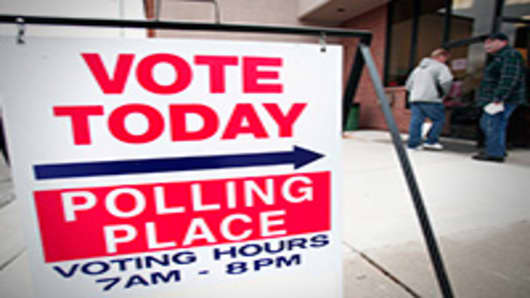As more investors vie for fewer foreclosed properties, prices are going up and great deals are getting scarce.
Buyers of bank-owned homes in September got a 7.7 percent discount versus the same home in a non-distressed sale, according to a new analysis by Zillow, an online real estate sales and information company. The discount fell from 9.1 percent a year ago and from a peak of 23.7 percent in August of 2009*.
The smallest discounts are now found in the markets which suffered the most in the housing crash but have now become ground zero for private capital, looking to take advantage of the newly hot single-family rental market.
Phoenix, where foreclosures accounted for more than half of all home sales during the worst of the housing crash, has largely been picked clean, so much so that there is now no discount on a distressed property. The same holds true for Las Vegas, according to Zillow.
(Read More: Homeowners Hit by Sandy May Save Thousands of Dollars)
"The smallest foreclosure discount is found in places where competition for homes is so high, people there are willing to pay the same amount for a foreclosure re-sale that they would for a non-distressed home simply to take advantage of historic affordability," said Zillow chief economist Stan Humphries in a release.
On the flip side, housing markets that have not garnered quite so much investor attention are showing the biggest foreclosure discounts: Pittsburgh (27.4 percent), Cleveland (25.8 percent), Cincinnati (20.1 percent) and Baltimore (20 percent).
While investors are certainly broadening their searches to a wider real estate market, some argue that while big discounts may be gone from hot investor markets, there is still good reason to be there.
"The sale price of the property is only one consideration; other factors include the cost of repairs needed to make the property rentable, and what the anticipated rental price of the home is," notes Rick Sharga of Carrington Mortgage Holdings, a private equity fund investing in distressed homes and mortgages.
"It's entirely possible that an investor can make a reasonable yield on a property even paying close to market price on a home, if the rental rates are attractive enough. If the investor believes that home prices in a given market are going to continue to rise over a longer period of time, this can also factor into a decision to continue to buy there even without a foreclosure discount," according to Sharga.
(Read More: Home Prices Rise, but Analysts See Pressure Ahead)
Despite rising home values and a slowly improving jobs picture, many Americans are priced out of the home-buying market due to damaged credit. Others are simply not ready to take a bet on home ownership, after so many lost so much in the historic boom to bust of the last decade. There are now 6.7 million additional households renting, compared to the cyclical low of 2004, according to Census data analyzed by Paul Diggle of Capital Economics.
"The combination of rising house prices and an unchanged homeownership rate is a useful reminder that investor demand is a significant driver of this housing recovery," notes Diggle. "Admittedly, a number of indicators, such as the National Association of Realtors' breakdown of sales by type, have been pointing to a growing role among conventional owner-occupier buyers. But a return to more normal levels of activity among this group still seems some way off."
Household formation is rising, as younger workers start to find jobs and move out of their parents' homes, but they generally are not moving to home ownership. Until more Americans are able to qualify for today's record low mortgage rates, the rental play, discount or not, appears to be a strong one.
(*Zillow compared the actual sale price of foreclosed homes nationwide to the estimated price of the same home were it to sell in a non-distressed transaction. Other analyses compare median home prices of non-distressed homes vs. distressed, but that does not take into account the differing sizes and characteristics of the homes. Distressed properties tend to be smaller and in less affluent neighborhoods, which a median comparison cannot incorporate.)
Click on ticker to follow real estate news:
US Home Builders
Questions? Comments? RealtyCheck@cnbc.com
Follow me on Twitter @Diana_Olick or on Facebook at facebook.com/DianaOlickCNBC



